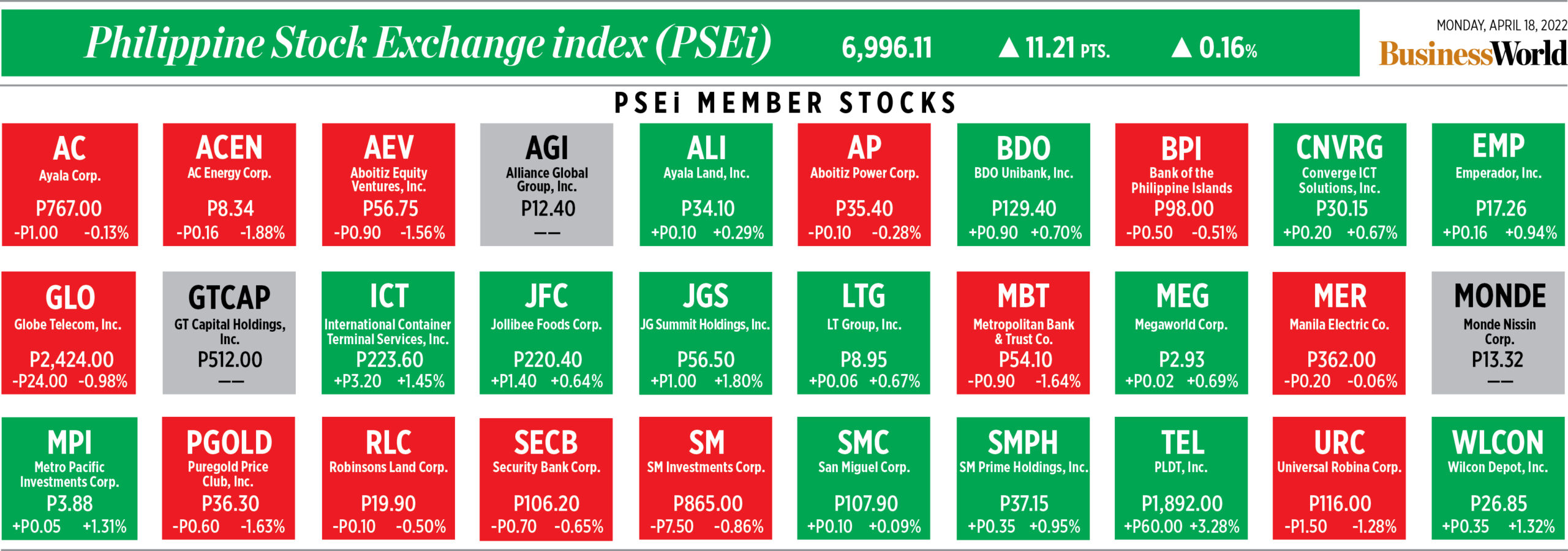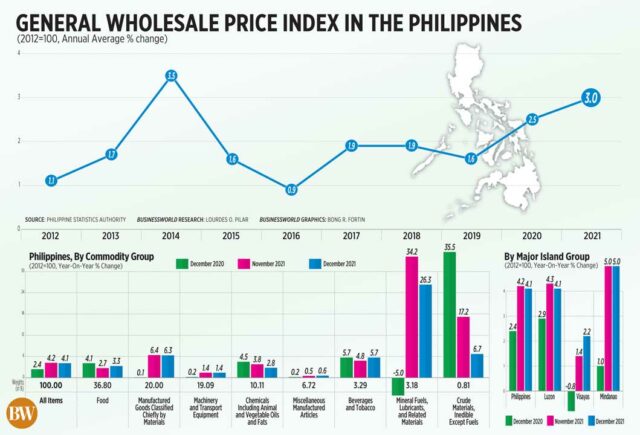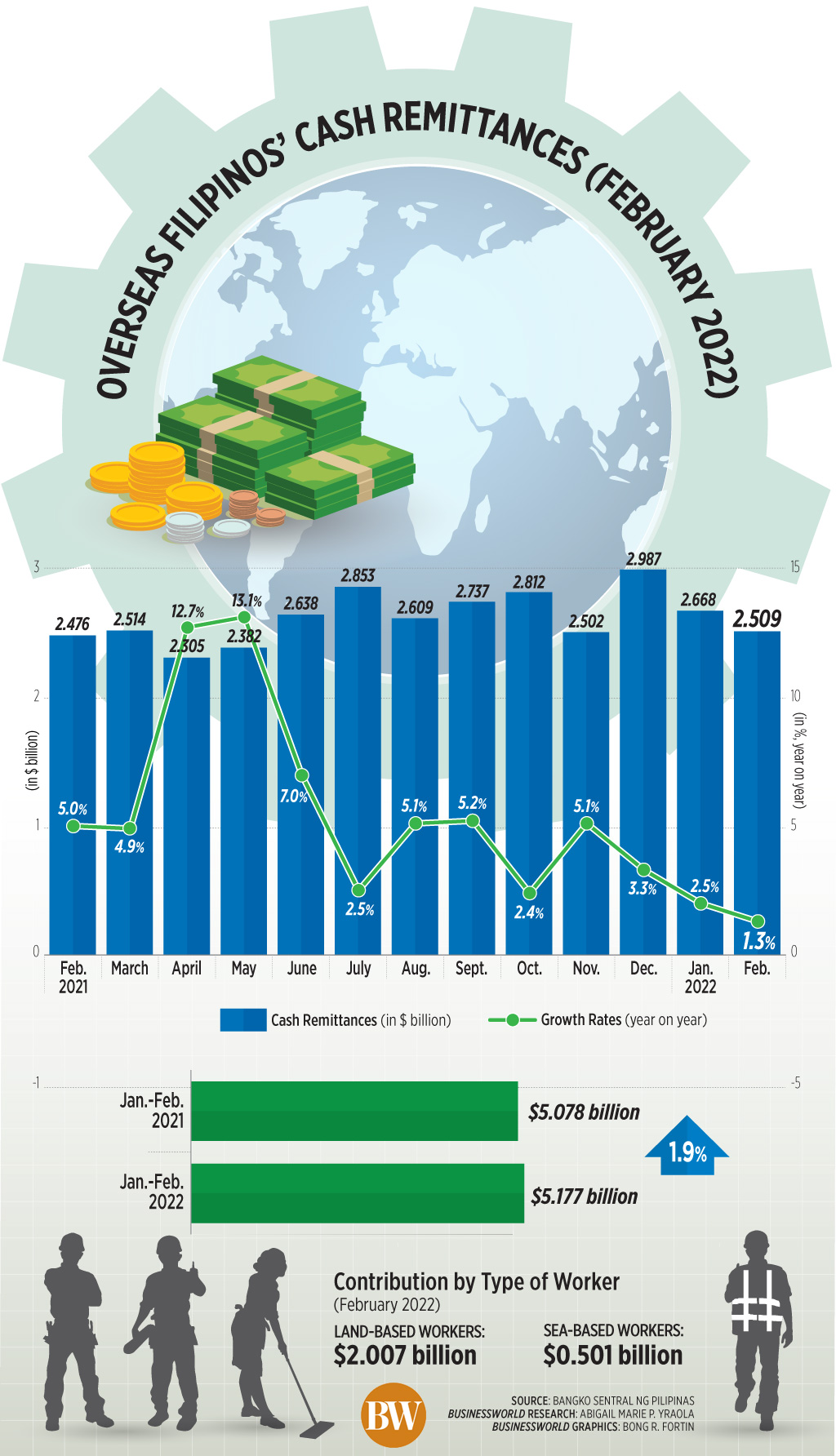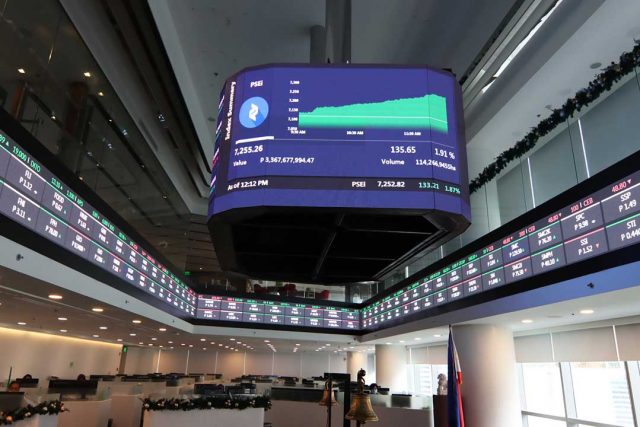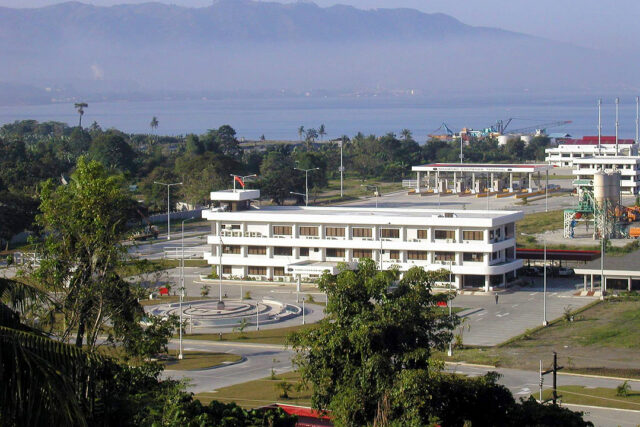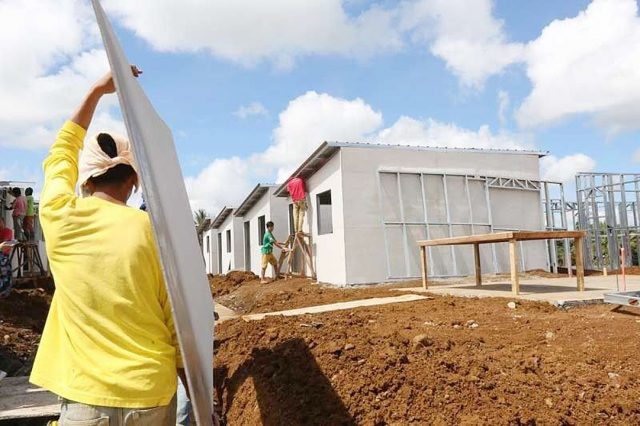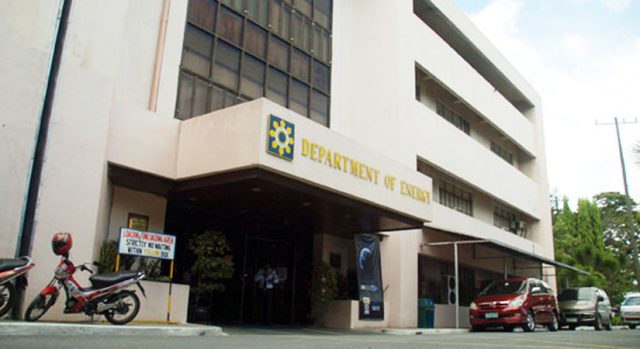General Wholesale Price Index in the Philippines
THE COUNTRY’S wholesale prices of general goods rose to their highest level in seven years in 2021 as lockdown restrictions further eased in the last two months. Read the full story.
Overseas Filipinos’ cash remittances (Feb. 2022)
CASH REMITTANCES from overseas Filipino workers (OFWs) increased in February, although at its slowest pace in 13 months, reflecting the impact of the resurgence of coronavirus disease 2019 (COVID-19) infections in many countries. Read the full story.
Peso down on hawkish Fed
THE PESO depreciated versus the greenback on Monday as a US central bank official said they plan to raise rates fast to tame rising inflation.
The local unit finished at P52.27 per dollar on Monday, shedding 24 centavos from its P52.03 close on Wednesday, based on bankers Association of the Philippines data.
Local financial markets were closed on April 14-15 in observance of Maundy Thursday and Good Friday.
The peso opened at P52.15 per dollar on Monday. Its weakest showing was at P52.29, while its intraday best was at P52.15 against the greenback.
Dollars exchanged dropped to $1.142 billion on Monday from $1.195 billion on Wednesday.
The peso weakened due to continued hawkish signals from a Fed official, Rizal Commercial Banking Corp. Chief Economist Michael L. Ricafort said in a Viber message.
Reuters reported that Cleveland Federal Reserve Bank President Loretta Mester on Thursday said the central bank will eye to raise interest rates fast enough to tame inflation without pushing the economy into recession or derailing the strong jobs market.
“Our intent is to reduce accommodation at the pace necessary to bring demand into better balance with constrained supply in order to get inflation under control while sustaining the expansion in economic activity and healthy labor markets,” Ms. Mester said.
The Fed increased interest rates by a quarter percentage point last month to tame surging inflation.
Meanwhile, a trader in an email said the faster increase in US producer inflation was also factored by the market, as this could strengthen the case for monetary policy tightening.
US Labor Department data released last week showed the producer price index for final demand rose 1.4% in March, its largest gain since the government revamped the series in December 2009.
For Tuesday, both Mr. Ricafort and the trader gave a forecast range of P52.15 to P52.35. — L.W.T. Noble with Reuters
Stocks inch higher ahead of US data, earnings
STOCKS inched up on Monday ahead of the release of major US earnings reports and economic data and despite fears of a more aggressive tightening by the US Federal Reserve.
The benchmark Philippine Stock Exchange index (PSEi) went up by 11.21 points or 0.16% to close at 6,996.11 on Monday, while the broader all shares went down by 2.62 points or 0.07% to 3,723.96.
“Philippine shares closed slightly higher as investors brace for a week of major first quarter 2022 US earnings reports ahead. Last week, US equities closed lower on Thursday as they feared higher rates and inflation could darken the economic outlook for earnings,” Regina Capital Development Corp. Head of Sales Luis A. Limlingan said in a Viber message.
Mr. Limlingan said the market is waiting for the release of US data on housing data estimates, jobless claims, and the purchasing managers’ index.
“Local stocks managed to post marginal gains on Monday even as most investors stayed on the sidelines amid a dearth of fresh incentives. The market remained apprehensive as some macro data, particularly inflation and interest rates, may be a bit uncertain in the months ahead due to supply chain issues and elevated oil prices,” Papa Securities Corp. Equities Strategist Manny P. Cruz said in a text message.
US stock investors worried geopolitical uncertainty and the Fed’s fight against inflation could dent economic growth are heading for defensive sectors they believe can better weather turbulent times and tend to offer strong dividends, Reuters reported.
The healthcare, utilities, consumer staples and real estate sectors have posted gains so far in April even as the broader market has fallen, continuing a trend that has seen them outperform the S&P 500 this year.
Most investors are on the lookout as the Fed has said it will aggressively tighten its policy to combat surging consumer prices. Several big Wall Street banks have raised concerns against the Fed’s aggressive measures, which could bring about a recession.
At home, sectoral indices were split on Monday. Services climbed by 19.45 points or 1% to 1,946.56; mining and oil rose by 73.03 points or 0.59% to 12,290.64; and property gained by 16.94 points or 0.52% to 3,238.38.
Meanwhile, holding firms fell by 18.58 points or 0.28% to 6,552.06; industrials lost 25.28 points or 0.26% to end at 9,608.53; and financials declined by 3.82 points or 0.23% to 1,649.63.
The MidCap index dropped by 5.55 points or 0.47% to close at 1,168.14 and the Dividend Yield index improved by 0.42 point or 0.03% to 1,676.78.
Value turnover decreased to P3.66 billion with 751.06 million shares changing hands from the P4.21 billion with 1.42 billion issues seen on Wednesday. The market was closed on April 14-15 in observance of Maundy Thursday and Good Friday.
Decliners narrowly beat advancers, 96 versus 90, while 47 names closed unchanged.
Net foreign selling dropped to P198.13 million from the P294.89 million seen the previous trading day. — Luisa Maria Jacinta C. Jocson with Reuters
Sotto organizing campaign to override SIM card bill veto
SENATE PRESIDENT Vicente C. Sotto III said on Monday said he hopes to “save” the proposed SIM Card Registration Act by overriding President Rodrigo R. Duterte’s veto before the 18th Congress closes.
“I was going to call Executive Secretary Bingbong (Salvador C.) Medialdea, I will tell him that the way to go around this is that both houses of Congress will overturn the veto of the President, and then the provision that they dislike can be questioned by the Supreme Court, and we can ask the Supreme Court to declare it unconstitutional,” according to a transcript issued by his office of a briefing he conducted.
“But then again, the prepaid SIM cards must be registered because that is part of the law,” he added. “It will become a law minus the provision that Malacañang does not want.”
Mr. Sotto, who is currently running to become Vice-President, said an override can be done by May 23 if his proposal to seek a constitutional challenge is approved by the President. Congress can override a veto by a two-thirds vote in both the House and the Senate, effectively barring the President from blocking a law that has significant support from legislators.
The bill was designed to deter terrorism, fraud, and blackmail enabled by the anonymity provided by unregistered phones.
Mr. Sotto said the Philippines is one of the few countries that does require the registration of prepaid Subscriber Identity Module (SIM) cards, hindering criminal investigations.
“I think the veto of the President (was due to the registration requirement for) social media. I think it’s a matter of how it was explained, why it was included in the period of amendments,” Mr. Sotto said. The original version of the proposed measure did not contain the vetoed provision.
The President’s Spokesman, Jose Martin M. Andanar said Mr. Duterte does not approve of the social media registration provision, which he fears may pave the way for surveillance in violation of Constitutional rights.
According to the consolidated version of Senate Bill 2395 and House Bill 5793, the core provision of the legislation remains a requirement for all telecommunications companies to make the registration of SIM cards a requirement for their sale.
Representative Victor A. Yap, who heads the chamber’s information and communications technology committee, has asked the Palace to provide a clearer description of the provisions in the bill that it finds objectionable.
“Freedom of speech is not an absolute right. The government has the power… even the duty to regulate it for the common good of its citizens,” Mr. Yap, the primary author and sponsor of the bill, said in a statement on Monday.
“There is nothing in the bill that prohibits free speech nor invades the privacy of an individual,” he added, noting that the measure only seeks to establish accountability of individuals in digital and online communities as is done in “real life.”
The passage of the bill addresses continuously evolving security concerns, Mr. Yap said, especially with information and communication technologies becoming increasingly pervasive.
Senator Sherwin T. Gatchalian, one of the co-authors of the bill, said he will continue to seek the passage of the legislation should he be returned to office in May, citing the need to deter fraud in digital activities.
“This is one of the first things I will present when we return to the Senate,” he said in a Monday statement, “but I will separate the proposal for social media (in) deeper and more comprehensive detail.”
He noted that social media is currently being used to perform several harmful activities, including troll attacks, which he has been a victim of.
“I, on the other hand, am open to fixing the law to be clear. But in theory, only real people should register on social media,” he said.
He said criminals have been taking advantage of anonymity and have reduced consumer confidence in online and digital transactions.
The bill, Mr. Gatchalian said, seeks to promote accountability and provides mechanisms that make it difficult for criminals to commit mobile phone, internet or electronic communication-aided criminal activity.
It will also give law enforcement agencies the tools to establish evidence trails during their investigations, he added. — Alyssa Nicole O. Tan
Senate panel considers bill limiting e-sabong to Sundays, public holidays
A SENATE committee said on Monday that it is considering a bill that will restrict online cockfighting, known as e-sabong, to Sundays and holidays.
“There is a need to craft a law regulating the e-sabong industry which includes, among others, limiting e-sabong operations to Sundays and legal holidays,” Senator Ronald M. Dela Rosa, who chairs the Public Order and Dangerous Drugs Committee, said during the hearing.
The bill also hopes to clarify the powers and functions of government agencies regulating e-sabong, the tax regime for operators and agents, and calls for the installation of CCTV cameras at betting stations and the cockfighting venue, he added.
At the hearing, Senator Francis N. Tolentino, who chairs the Senate local government committee, said the Philippine Amusement and Gaming Corp. (PAGCOR) should not allow e-sabong to operate during religious holidays.
He said he has received reports that Pitmasters Live, the e-sabong operator run by Charlie Ang, who is known in the gaming trade as “Atong,” conducted business on Good Friday, logging more than 200 matches.
“There was a gross violation of our faith. I don’t know why it was done,” he said, adding that “PAGCOR slept on its job” of regulating gambling operations.
Mr. Tolentino said it will take weeks or months to draft legislation that will be left to the 19th Congress which balances the need for tax revenue while respecting religion.
The legislators also proposed a Know-Your-Customer policy currently observed by banks that will apply during the registration stage of the e-sabong account which will also monitor how the account is used, citing the need to keep minors from betting on online cockfights.
“Our intent is that with the implementation of our recommendations, we could prevent the repeat of these untoward incidents and with the help of our national police and the Department of Justice, we would be able to have those involved in the crime accountable and give justice to the victims and their families,” Mr. Dela Rosa said. — Alyssa Nicole O. Tan
Most IPAs still rely on subsidies, says DoF
ONLY TWO Investment Promotion Agencies (IPAs) are considered self-sufficient in terms of receiving government aid, with the remainder taking in P58 billion in budgetary support between 2017 and 2021, according to Fiscal Incentives Review Board (FIRB) estimates provided by the Department of Finance (DoF).
In a statement on Monday, the DoF identified the two subsidy-free entities as the Philippine Economic Zone Authority (PEZA) and the PHIVIDEC Industrial Authority (PIA), which manages an economic zone in northern Mindanao.
The subsidies were used by IPAs to invest in assets and for maintenance and other operating expenses (MOOE).
“It is only right that (IPAs) maximize the budgetary support they get from the national government,” Finance Secretary and FIRB Chairman Carlos G. Dominguez III was quoted as saying.
He added that their efforts should go towards attracting foreign investment, “especially in this time of the pandemic, that would create jobs and supercharge our economy.”
The DoF said IPAs receiving budgetary support were the Authority of the Freeport Area of Bataan (AFAB), the Aurora Pacific Economic Zone and Freeport Authority (APECO), the Board of Investments (BoI), the Bases Conversion and Development Authority (BCDA) Group, the Cagayan Economic Zone Authority (CEZA), the Subic Bay Metropolitan Authority (SBMA), the Tourism Infrastructure and Enterprise Zone Authority (TIEZA), and the Zamboanga City Special Economic Zone Authority (ZCSEZA).
Between 2017 and 2021, the BCDA Group received P7.47 billion, with 83% of the funds used for MOOE.
Funding from the government supplements whatever each IPA can exact in the form of “fees and other charges from their locators and registered business enterprises (RBEs),” the DoF said.
Finance Assistant Secretary Juvy C. Danofrata, who heads the FIRB Secretariat, said at a recent DoF meeting that the AFAB allocated the entirety of its budget to capital outlays or the purchase of new assets, while the SBMA and TIEZA allocated the entirety of theirs to MOOE.
In 2021, IPAs received P5.07 billion in budgetary support from the government. — Tobias Jared Tomas
More clarity seen in H2 on energy efficiency rules
By Ram Christian S. Agustin
THE ENERGY efficiency (EE) industry said it is expecting approval in the second half of 2022 of guidelines that will clarify the workings of Republic Act No. 11285, or the Energy Efficiency and Conservation (EEC) Act, in time for the full reopening of the economy.
In a Viber message, Philippine Energy Efficiency Alliance (PE2) President Alexander D. Ablaza said clearer rules will allow developers to plan their projects more effectively, particularly once the procedures for energy audits are outlined.
Mr. Ablaza said the industry also requires “more granular policy issuances” on the procurement and financing of energy service company (ESCO) performance contracts.
He said he hopes the policy will be clarified for public-private partnership (PPP) transactions and joint venture (JV) agreements designed specifically for public sector EE projects.
PE2 is also awaiting the Board of Investments approval for the Tier III reclassification of all EE projects, regardless of whether they are strategic or complex, which Mr. Ablaza said will help address the estimated P12.2-trillion “investment gap” by offering an incentive framework for third-party investors.
The Strategic Investment Priorities Plan (SIPP), which governs which types of investment are preferred for tax breaks, classifies Tier III investments as “critical to the structural transformation and industrial revolution of the economy.”
Before the passage of RA 11285, the number of eligible energy-intensive industries implementing EE projects was limited due to the absence of a mandatory energy efficiency and conservation policy framework.
With the implementation of the EEC law, designated establishments (DEs) are directed to install energy management systems in order to become more efficient users of energy.
PE2 expects that a growing proportion of DEs will become more aware or will comply with their EE obligations this year “and through the next five years.”
The organization will be staging its second Energy Efficiency Day conference on April 20-21, to air out the latest EE market developments and innovations.
PE2 is positioning its services as a primary resource or “first fuel” as the Philippines shifts to clean energy in response to the annual shortages during the dry season and the surge in fuel prices triggered by the Russia-Ukraine war.
“This year’s event will place heavier emphasis on climate finance, energy service company (ESCO) performance contracting and third-party investment models,” Mr. Ablaza added.
The webinar will consist of two half-day sessions.
Wholesale price growth of building materials in NCR picks up in Jan
WHOLESALE price growth of construction materials in Metro Manila accelerated in January to its highest level in two months, according to preliminary data from the Philippine Statistics Authority (PSA) released Monday.
The construction materials wholesale price index in the National Capital Region (NCR) rose 5.3% year on year, against the 5.2% logged in December and the 1.2% posted a year earlier.
The Januay reading was the highest since the 5.4% growth rate in November.
Economists said the pickup seen in January was due to construction activity resulting from the relaxation of movement restrictions in Metro Manila and surrounding areas to Alert Level 2 in November and December.
“Demand may have been further rising from 2021,” UnionBank of the Philippines, Inc. Chief Economist Ruben Carlo O. Asuncion said in an e-mail.
“Note, however, that the slight increase month on month may have been due to the impact of Omicron which we think may have been largely shaken off (based on) more updated macroeconomic data,” he said.
Asian Institute of Management (AIM) economist John Paolo R. Rivera attributed the price increases to increased construction activity by both the private and public sectors.
“Condominium and commercial construction have been in full swing since restrictions were relaxed,” he said in a text message. “The Build, Build, Build has also been continuous as we end the Duterte term.”
Mr. Rivera also noted supply constraints due to the pandemic, which obstructed the seamless flow of construction materials.
According to the PSA, commodity groups that saw a pickup in wholesale price growth were GI sheets at 13%, up from December’s 11.3%; electrical works (8.5% from 7.1%); plumbing fixtures and accessories/waterworks (5.4% from 2.7%); painting works (4.2% from 3.4%); and PVC pipes (4.2% from 3.4%).
Growth also accelerated in the bulk prices of concrete products and cement (3.5% in January from 3% in December); plywood (3.1% from 2.7%); doors, jambs, and steel casements (2.9% from 2.5%); and sand and gravel (2.1% from 0.9%).
The wholesale price growth of lumber eased 2.5% in January from 2.8% the preceding month, while growth in reinforcing and structural steel prices slowed to 7% from 8.8%.
Tileworks prices retreated by 0.7%, after a 1.8% drop in December. Price growth in the remaining commodity groups was steady.
The government shifted the capital region as well as other areas to the stricter quarantine setting of Alert Level 3 in January to contain the surge in Omicron variant cases of the coronavirus. Quarantine returned to Alert Level 2 in February, moving to Alert Level 1 in March.
“This trend in construction prices may continue as demand for infrastructure continue to increase with the reopening of the economy and as supply constraints continue to persist,” Mr. Rivera said.
Mr. Asuncion said he he expects demand to continue to improve moving forward with the further reopening of the economy.
“However, we also see tightness in supply due to China’s lockdowns in March and April that may push prices upward as the economy tries to come out of the pandemic.” — Abigail Marie P. Yraola
DoE logs 3,387 energy consumption reports from designated establishments
THE Department of Energy (DoE) said it tallied 3,387 submissions from designated establishments (DEs) for the 12 months beginning April 2021.
The annual energy consumption reports were provided by DEs in the commercial, industrial, and transport sectors.
The reporting entities purchased electricity vaued at P15 billion and realized 120 million kilowatt hours (kWh) of energy savings.
“We aim to create an energy efficient Philippines that cuts across economic sectors and (makes) energy efficiency and conservation as a way of life for all Filipinos,” Director of the Energy Utilization Management Bureau Patrick T. Aquino said in a webinar.
During the period, DEs also reported 470 energy efficiency (EE) projects.
Currently, there are 3,204 EE practitioners and 32 registered energy service companies (ESCOs) registered with the Energy Utilization Management Bureau (EUMB) in compliance with the Energy Efficiency and Conservation Act.
These organizations are required to submit annual reports on their projects to facilitate EUMB monitoring. They are also required to present their projects for independent verification, among other requirements stipulated by the EEC Act’s Implementing Rules and Regulations (IRR).
Mr. Aquino said the DoE is currently recommending the establishment of the National Energy Efficiency and Conservation Office to improve the compliance of local government units (LGUs), and oversee the implementation of their respective Local Energy Efficiency and Conservation Plans (LEECP).
Around P15-billion worth of investment, equivalent to 55 megawatts (MW) of deferred capacity, has been generated since monitoring of DEs started.
“Our intervention means that the next generation will continue to have sufficient and reliable supply of energy,” he added. — Ram Christian S. Agustin
Fortune favors the taxpayer… who files on time
On Tuesday last week, the 2020/2021 Bar examinations list of successful examinees was released. I am one of those who made it. Truly, fortune favors the bold, as I and my fellow bar examinees struggled to study and prepare for the Bar exams despite the many challenges brought about by the COVID-19 pandemic, typhoons, and postponements. Just like a taxpayer who is trying hard to meet the April 18, 2022, Annual Income Tax Return (AITR) deadline to avoid penalties for late filing and payment.
The Tax Code provides that a penalty equivalent to 25% of the tax due will be imposed due to the taxpayer’s failure to file a tax return and pay the tax due on time. On top of that, an interest of 12% per annum is also imposed as a penalty.
Fortunately for the taxpayers who filed their AITRs on time yesterday, the BIR had previously released relevant issuances – Revenue Memorandum Circulars (RMC) 42- 2022 and RMC 43-2022.
RMC 42- 2022
In RMC 42-2022, the BIR clarified that the AITR may be amended on or before May 16, 2022, without imposition of interest, surcharge, and penalties. Provided that, a taxpayer whose amended returns will result in overpayment of taxes paid can opt to carry over the overpaid tax as credit against the tax due for the same tax type in the succeeding period or file for a refund.
This is a welcome development for taxpayers who were able to file the AITR on April 18, 2022, as they may subsequently amend their AITR on or before May 16, 2022 without interest, surcharge, and penalties.
RMC 43- 2022
In addition to the above RMC, the BIR also issued RMC 43-2022 which put an end to the confusing provisions of RMC 54-2018 and RMC 46-99.
RMC 54-2018 provides that when an additional tax is due per amended return, the 25% surcharge applies to the additional tax to be paid. On the other hand, in RMC 46-99, it is stated that no 25% surcharge may be imposed in computing for the deficiency tax assessment resulting from a tax audit.
RMC 43-2022 noted clearly that based on the two RMCs, it appears that a taxpayer is unduly penalized for amending tax returns to pay the correct tax due but is unintentionally rewarded if unremitted taxes or the correct tax due is paid only during tax audit, which therefore discourages taxpayers from amending their tax returns to voluntarily pay the correct tax due.
Thus, RMC 43-2022 reconciled these conflicting rules by not imposing the 25% surcharge to an amendment of a tax return if the taxpayer was able to file the initial tax return on or before the prescribed due date of its filing. On the other hand, the 25% surcharge will be imposed on a tax deficiency found during audit if the particular tax return being audited was found to have been filed beyond the prescribed period or due date.
For example, if the taxpayer filed the AITR for taxable year 2021 on April 18, 2022, but subsequently amended the return on Dec. 8, 2022, the surcharge will not be imposed because the initial tax return (filed on April 18, 2022) was filed on the prescribed due date of its filing.
If, however, the taxpayer filed the AITR for taxable year 2021 on June 10, 2022, and on Oct. 31, 2022, the taxpayer is audited by the BIR, if the investigation results in a finding of deficiency income tax, the 25% surcharge will be imposed because the particular tax return being audited was filed beyond the prescribed period or due date.
According to the recent RMCs, taxpayers will be encouraged to immediately amend their AITR to reflect the correct figures, as necessary, without fear of the 25% surcharge.
As a reminder, per the 1997 Tax Code, as amended, within three years from the date of the filing of the tax return, the same may be modified, changed, or amended, as long as no notice for audit or investigation for such return has in the meantime been actually served upon the taxpayer.
Thus, if the taxpayer chose to amend the initial AITR for calendar year 2021 on or before May 16, 2022, per RMC 42-2022, no interest, surcharge, and penalties will be imposed. On the other hand, if the taxpayer subsequently amends the AITR beyond the May 16, 2022 cut-off, the taxpayer may do so without risk of the 25% surcharge as per RMC 43-2022, but interest and compromise penalties may be imposed by the BIR. It is advisable, therefore, for the taxpayers to review the AITRs that they have filed and make the necessary amendments, if any.
Considering the challenges of AITR preparation, by reason of the holidays and various other limitations, and the fact that we are still in a pandemic, the BIR’s recently released issuances are good news for taxpayers. Indeed, fortune favors the taxpayer who files on time.
Let’s Talk Tax is a weekly newspaper column of P&A Grant Thornton that aims to keep the public informed of various developments in taxation. This article is not intended to be a substitute for competent professional advice.
Lorenzo V. Matibag is a senior associate from the Tax Advisory & Compliance division of P&A Grant Thornton, the Philippine member firm of Grant Thornton International Ltd.


